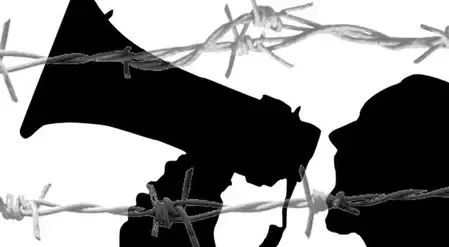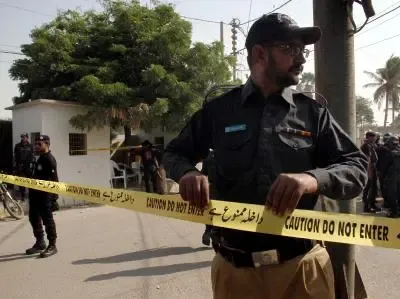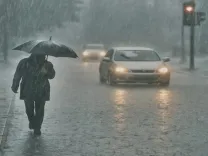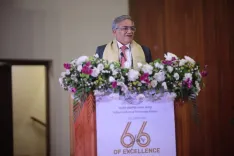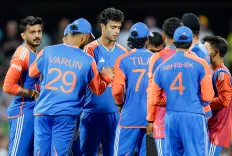European Commission Launches Amidst Domestic and Global Challenges
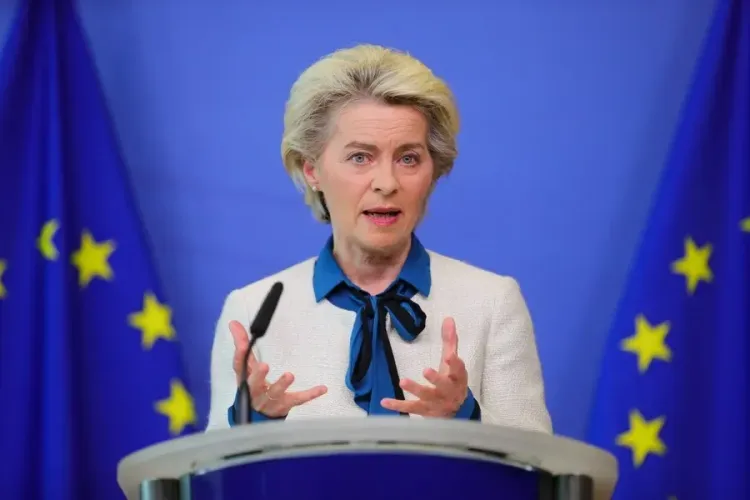
Strasbourg, Nov 28 (NationPress) The European Parliament (EP) has voted to approve the new team of the European Commission, headed by Germany's Ursula von der Leyen, who will commence her second five-year term as president.
Experts indicate that as the executive body of the EU, the Commission is tasked with addressing both domestic and international governance challenges. On the home front, it needs to tackle the diminishing economic competitiveness within Europe, while on a global scale, it must work towards enhancing the EU's strategic autonomy.
Members of the European Parliament approved the new 27-member, right-leaning executive team with a tally of 370 votes in favor, 282 against, and 36 abstentions. The Commission is scheduled to begin its five-year term on Sunday.
While von der Leyen, representing the European People's Party (EPP) of the EP, secured her second term as Commission president in July, the process of selecting the remaining 26 commissioners was filled with challenges. Her proposed list aimed to strike a balance in terms of gender, political affiliations, and representation from member states but faced significant obstacles.
Between Nov. 4 and 12, the EP conducted hearings to assess the qualifications of each commissioner-designate. Controversies arose particularly concerning two executive vice-president-designates -- Italy's Raffaele Fitto from the far-right Brothers of Italy party and Teresa Ribera, Spain's minister for ecological transition and demographic challenge.
The Progressive Alliance of Socialists and Democrats (S&D), another party within the EP, vehemently opposed Fitto's nomination, accusing von der Leyen of catering to far-right political elements. Simultaneously, EPP members from Spain criticized Ribera, questioning her handling of recent floods in Valencia that resulted in over 200 fatalities. These disputes prolonged the final approval of the Commission.
To resolve the stalemate, EP leaders from the EPP, S&D, and Renew Europe held negotiations and reached a consensus on November 20 to endorse von der Leyen's team. This agreement was pivotal, as the three groups together held a majority in the 720-seat European Parliament.
Despite the approval, the new Commission has garnered the lowest level of support in Parliament since 1993, as reported by Politico. Former EP Vice President Jacek Saryusz-Wolski criticized the outcome, labeling it on social media as "the lowest EP approval in history" and attributing it to "inter-party bargains."
In the context of escalating geopolitical tensions and a more intricate political environment, the new European Commission faces the dual challenge of navigating both domestic and external pressures.
Janis Emmanouilidis, deputy chief executive and director of studies at the European Policy Centre think tank, noted during a Wednesday online seminar that the path ahead for the Commission appears increasingly difficult, considering the challenges that the EU has faced over the past decade.
Internally, Europe is struggling with heightened risks of economic downturn, while far-right movements are gaining traction. This rise has intensified internal divisions regarding issues like immigration and the green transition, making these challenges even more evident.
A recent report on the future competitiveness of Europe, authored by Mario Draghi, former Italian prime minister and ex-European Central Bank president, cautioned that the eurozone economy has stagnated with minimal signs of recovery.
It also highlighted that EU member states have yet to make significant investments in crucial areas such as defense, technology, and green transition, nor have they reached a consensus on implementing joint EU debt mechanisms, as reported by Xinhua news agency.
Externally, the ongoing Russia-Ukraine conflict, the repercussions of tensions in the Middle East, and Donald Trump's resurgence have all amplified Europe's geopolitical and trade risks.
Von der Leyen is commencing her mandate amidst "an exogenous shock to deal with," as reported by AFP, citing Simone Tagliapietra from the Brussels-based think tank Bruegel.
The European Council adopted the Strategic Agenda 2024-2029 in June, emphasizing the necessity to bolster Europe's defense and security, enhance its competitiveness, and promote economic prosperity. The new Commission's policy priorities are closely aligned with this agenda.
On Wednesday, von der Leyen addressed the EP regarding the next steps in her agenda, emphasizing that European security will be a primary focus for the Commission.
Jian Junbo, deputy director of the Center for China-Europe Relations at the Institute of International Studies at Fudan University, stated that the new Commission's policy will prioritize security and geopolitical competition, economic resilience and innovation, and green development, with security being the foremost concern.
However, he pointed out that defense remains a sovereign domain of member states, complicating the EU's ability to implement unified policies regarding defense coordination.
He Zhigao, a scholar at the Institute of European Studies of the Chinese Academy of Social Sciences, indicated that the EU's greatest challenge in defense lies within its dependence on the NATO framework.
"As long as NATO exists, making substantial progress on the EU's defense strategy remains challenging," he stated, noting that the EU's defense industry often resorts to makeshift adjustments rather than achieving a significant transformation.



